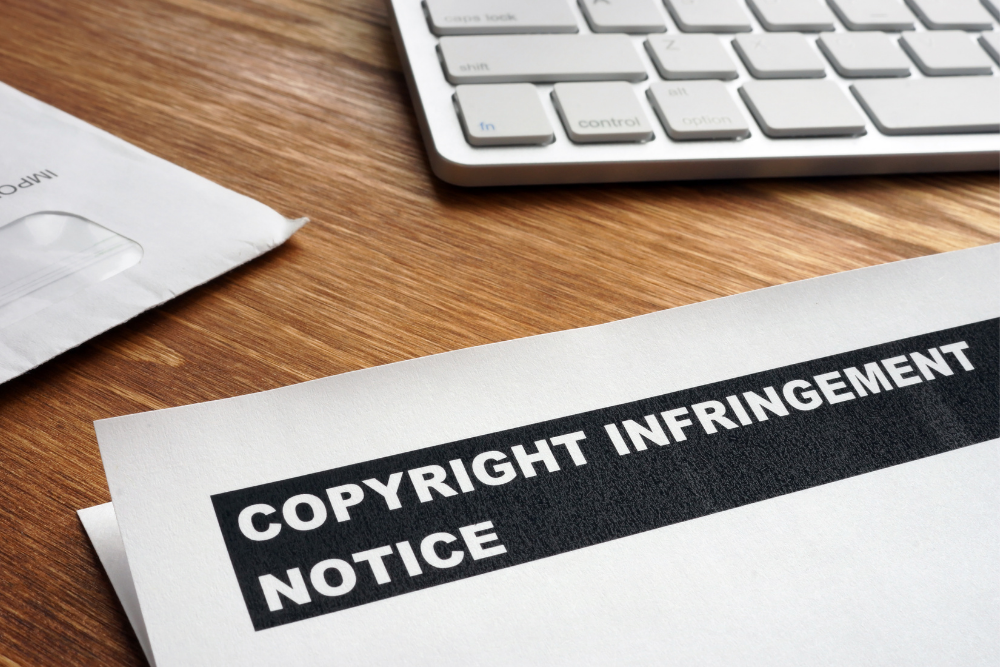Written by Guest Author, Marks Gray Associate Logan McEwen
On February 25, 2021, the Federal Circuit Court of Appeals issued its opinion in Bitmanagement Software GMBH v. U.S. At issue was software developed for the U.S. Navy which required payment on a per-user basis, and what it meant if the Navy allowed more users of the software than it paid for.
Pushing aside the issues of “how to sue the federal government” and “calculating damages against a sovereign,” the Federal Circuit’s decision has far reaching implications for small business owners everywhere (and is likely to trigger more than a few compliance audits by concerned general counsels at larger businesses).
The Costly Mistake of Copyright Infringement — and How User Limits Used to Work
Copyright infringement can be a costly mistake; statutory damages are “not less than $750 or more than $30,000 as the court considers just.” That number only gets higher when the infringement is not a mistake, raising the cap to $150,000 for willful copyright infringement. Most importantly, those statutory damages are per infringement.
With per-user license agreements, there has been an (understandable) assumption that if you have a license for the software and go beyond your use limit (e.g. install four users on a two-user license), you may have breached the license agreement, but you did not commit copyright infringement. You would be liable for the difference between the number of users you have versus the number of users you actually paid for. While exceeding the user limit presents some exposure, the exposure is quantifiable, entirely avoidable, and for a large number of small and larger businesses, minimal.
But the Federal Circuit’s decision changes that analysis entirely.
What the Court’s Decision Means for User-Limit Violations Going Forward
The court held that, even if there is a contract between the parties for use of the copyrighted software, if the number of users allowed under the license is exceeded, you are no longer dealing with a breach of contract. Instead, exceeding the user limit goes beyond the scope of the license and is a form of copyright infringement. With that comes all of the statutory remedies (and damages) available as if a contract never existed.
The court’s decision is one that seems like a weapon waiting to fall into the wrong hands. For every business owner intentionally engaging in willful copyright infringement or purposefully exceeding user limits on software, there are 50 business owners who are completely unaware of what software license user-limits exist within their business. How many duplicate installations of QuickBooks are out there, not through nefarious intentions, but just so the family business can do bookkeeping at the store and at home? How many small businesses track their software licenses?
How the Market Is Solving This Problem Itself… and How It Isn’t
This isn’t the end of the world and if anything will decline over time. With the push to “software as a service,” a significant percentage of commercial software licenses have switched to the subscription model, which tracks user-limitations and would prevent those business owners from unintentionally exceeding user-limitations. QuickBooks has integrated a user-limit verification protocol for the past few iterations of its desktop software, preventing those unwitting users who would otherwise accidentally exceed user-limitations.
But what about enterprise level software? There are a number of industries still utilizing software written before Y2K. Unlike small businesses, larger organizations can and do lose track of how software licenses were originally acquired, let alone what use limitations exist or how to account for them.
These issues with user-limits have always existed, but there was an assumption that in most cases the cost of fighting over it would dwarf the cost of additional user-licenses. That may no longer be the case with the Federal Court’s decision in Bitmanagement Software.
What Should Businesses and Others Expect, and What Can They Do?
Whether it be patents, trademarks, or copyrights, most intellectual property attorneys know that statutory damages are chum in the water for litigation trolls. Where there is money, you can always count on them to find the most creative ways to exploit any and all leverage given to them under intellectual property regimes. Their business models rely almost entirely on statutory remedies, and in most cases using those against small business owners who lack the capital to fight back on even footing.
While allowing for copyright infringement claims to be based on exceeding a software license’s user-limit will have little substantive effect on the law, it may provide a new tool and avenue for litigation trolls to harass a new generation of business owners.
Whether a business has five employees or 500, they would do well to conduct an audit of the software their business uses and confirm that the number of licensed users and number of actual users align, because no one wants to pay the troll’s toll.
Logan McEwen is an attorney with Marks Gray, P.A. focusing on intellectual property litigation and real property.
